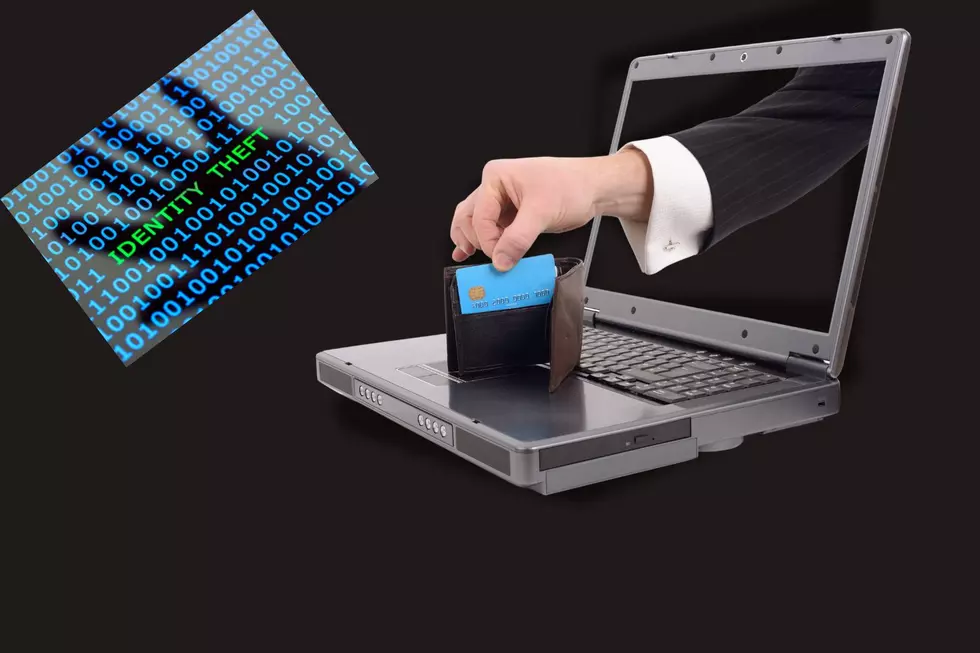
Identity Theft In Utah: Where We Rank
Identity theft is defined as "when someone takes your name and personal information (like your social security number) and uses it without your permission to do things like open new accounts, use your existing accounts, or obtain medical services."
It is quickly becoming the most popular cyber-crime in America and is in the top 10 of all crimes in the United States.
In Utah in 2023, nearly 5,400 identity theft crimes were reported -- approximately 165 incidences per 100,000 people in the state.
Believe it or not, that number is down from 2022, when there were nearly 5,600 cases, about 171 per 100,000 people.
The slight drop in cases was noted in a study performed by Cloudwards.net, which ranked Utah 48th among the states and the District of Columbia as worst states for identity threat.
That's actually a good thing, meaning Utah is the fourth best state among the 51 for keeping identities safe.
Some striking numbers from the study:
- Utah has decreased identity theft by 3.51 percent, but Tennessee, which had the best identity theft score overall, decreased ID theft by a whopping 21.28 percent. The state places identity theft in the same category as aggravated statutory rape and vehicular assault, with maximum jail terms of up to 12 years.
- The District of Columbia is atrocious at protecting identity. Home to our nation's capitol, DC has 478 identity theft reports per 100,000 people.
- You'll also want to avoid Georgia (457 cases), Florida (438), our neighbor Nevada (404) and Connecticut (384).
- Connecticut and Massachusetts had the highest year-to-year jump. Connecticut saw an increase of 69.9 percent and Massachusetts 58.1 percent.
- It's estimated that Americans lost $12.5 billion due to identity theft in 2023 alone.
Some advice (from Nerdwallet.com):
- Freeze your credit -- Freezing your credit with all three major credit bureaus — Equifax, Experian and TransUnion — restricts access to your records so new credit files cannot be opened. It’s free to freeze your credit and unfreeze when you want to open an account, and it provides the best protection against an identity thief using your data to open a new account.
- Safeguard your Social Security number -- Your Social Security number is the master key to your personal data. Guard it as best you can. When you are asked for your number, ask why it is needed and how it will be protected. Don’t carry your card with you. Securely store or shred paperwork containing your Social Security number.
- Be alert to phishing and spoofing -- Scammers can make phone calls appear to come from government entities or businesses, and emails that appear to be legitimate may be attempts to steal your information. Initiate a callback or return email yourself, working from a known entity such as the official website, rather than responding to a call or email. And be wary of attachments — many contain malware.
- Use strong passwords and add an authentication step -- Use a password manager to create and store complex, unique passwords for your accounts. Don’t reuse passwords. Adding an authenticator app can reduce your risk. Don’t rely on security questions to keep your accounts safe; your mother’s maiden name and your pet’s name aren’t hard to find. Think carefully about what you post on social media so you don't give away key data or clues about how you answer security questions.
- Watch your mailbox -- Stolen mail is one of the easiest paths to a stolen identity. Have your mail held if you’re out of town. Consider a U.S. Postal Service-approved lockable mailbox. You can also sign up for Informed Delivery through the USPS, which gives you a preview of your mail so you can tell if anything is missing.
- Use a digital wallet -- If you’re paying online or in a store, use a digital wallet, an app containing secure, digital versions of credit and debit cards. You can use it to shop online or at a compatible checkout terminal. Transactions are tokenized and encrypted, which makes them safer. In addition, contactless transactions have fewer health risks.
- Protect your mobile devices -- Use passwords on your electronic devices. Use a banking app rather than a mobile browser for banking.
- Check your credit reports regularly -- The three major credit reporting bureaus give consumers access to free credit reports weekly, accessible by using AnnualCreditReport.com. Check to be sure that accounts are being reported properly and watch for signs of fraud, like accounts you don't recognize. You can also sign up for a free credit report and score from NerdWallet to receive alerts when there are changes.

LOOK: Can You Recognize These Iconic '70s Objects
Gallery Credit: Stephen Lenz
LOOK: Things You Saw at Grandma's House
Gallery Credit: Stephen Lenz
More From KDXU 890 & 92.5









